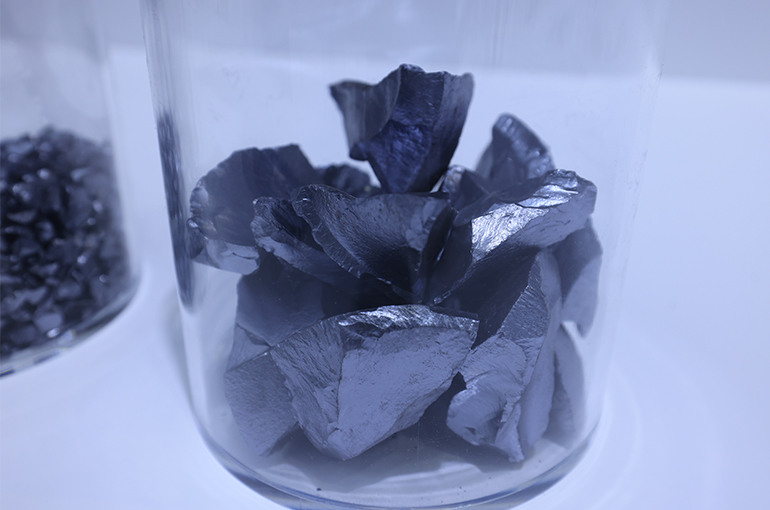 China's Polysilicon Prices Rise on Lower Output, Shipments
China's Polysilicon Prices Rise on Lower Output, Shipments(Yicai) Jan. 20 -- The price of polysilicon materials in China has climbed mainly due to a drop in related output and producers consciously reducing shipments.
The average price of the N-type polysilicon re-feeding material was around CNY41,700 (USD5,700) per ton last week, up 0.5 percent from a week earlier, according to data released by the silicon industry branch of the China Nonferrous Metals Industry Association on Jan. 15.
The average price of N-type granular polysilicon also rose 0.5 percent to CNY39,000 (USD5,330) per ton, while P-type polysilicon climbed 0.9 percent to CNY34,000 (USD4,650) per ton. Overall, prices for polysilicon materials have jumped by over 2 percent compared with Dec. 25.
Silicon material producers face relatively low inventory pressures, while sales pressure has been greatly alleviated after slashing production loads, the silicon industry branch noted. Firms aim to gradually reduce downstream raw material inventories by cutting shipments, which should restore polysilicon prices to a reasonable level.
All producers lowered their production loads last quarter, with 800,000 tons of newly completed projects delaying production, Lv Jinbiao, deputy director of the silicon industry branch's expert group, said to Yicai on Jan. 15. The capacity use rate dropped to below 50 percent last month, with the monthly output reaching 103,800 tons and starting to digest inventory, Lv noted.
China's polysilicon production declined by 22 percent in December from a month earlier, according to the silicon industry branch data. The drop will likely narrow to 5 percent this month, with output of around 98,000 tons.
This production trend is expected to continue at least through the end of the first quarter this year, Yicai learned. All active polysilicon producers in China are operating under reduced loads, with noticeable adjustments in Sichuan province so far this month.
To curb cutthroat competition, the world's largest producer of solar silicon Tongwei Group and leading solar panel materials maker Daqo New Energy announced on WeChat on Dec. 24 that they would cut production in an orderly manner, involving over 1.2 million tons of their polysilicon production capacity.
"The output will likely further drop this month, with downstream producers beginning to prepare materials for the Chinese New Year to accelerate the inventory digestion of polysilicon firms," Lv said. Major producers will continue to control production to balance supply and demand, Lv pointed out.
Editor: Martin Kadiev